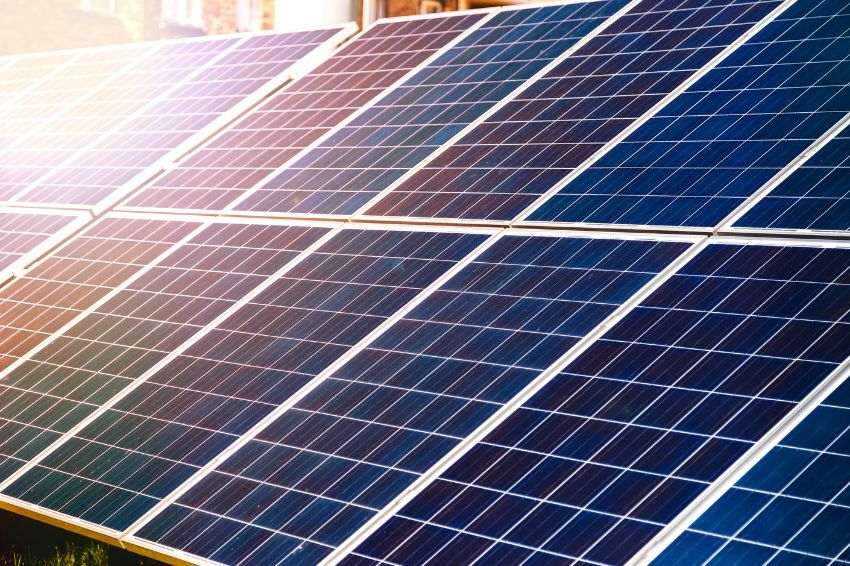A ABSOLAR (Brazilian Photovoltaic Solar Energy Association) announced that it is defending the expansion of public policies for the next Federal government to promote the development of photovoltaic energy in Brazil.
According to the entity, the idea is boost solar both of small systems on roofs, facades and small plots of land how much of large power plants interconnected in the national system, in addition to promoting national production chain and the evolution of storage market energy by batteries.
In a note, they stated that they are recommending the inclusion of the source as strategic tool in the government programs of candidates for the Presidency of the Republic, in order to promote the energy transition based on clean technologies and comply with international commitments made to combat the reduction of greenhouse gas emissions.
As a central measure, ABSOLAR recommends the creation of national programs for solar energy, signaling that the source will be a strategic part of the country's development policy based on a low-carbon economy, with proposals, for example, to accelerate the diversification of the electrical matrix, increase energy security, alleviate pressure on water resources and, thus, help reduce Brazilians' electricity bills.
The association also highlighted that it has worked with other government institutions, such as the MME (Ministry of Mines and Energy), proposing high-impact and rapid implementation measures capable of boosting the use of solar photovoltaics in Brazil.
To this end, it proposes that candidates incorporate a state goal of reaching about 5 million solar roofs by the end of 2026, which correspond to approximately 25 GW of installed capacity.
With this commitment, they highlighted that the sector intends to contribute to attracting R$ 124 billion in new private investments, providing the generation of 750 thousand new jobs qualified and a collection to public coffers of around R$ 37.6 billion in taxes.
Large power plants
With regard to large-scale solar plants, the aim is develop energy transition proposals that reach net zero by 2050, with emphasis on greater hiring of sustainable enterprises with more competitive technologies, especially solar.
Furthermore, they emphasized the expansion of investments in transmission infrastructure, in order to avoid bottlenecks in the connection, operation and flow of renewable energy generation and promotion of tenders for contracting electrical energy, power and reserve capacity with broad participation of renewables and storage systems.
National production chain
In the case of national production chain, the idea of ABSOLAR is to create a competitive and sustainable industrial policy for the solar sector, promoting tax equality between national and imported products, via relief from production inputs, in order to add competitiveness to the local manufacturing of equipment and components, among other measures.
The entity also proposes the expanding access to credit for the entire value chain of the photovoltaic market and the legal framework for energy storage, with the aim of bringing legal and regulatory security, as well as enabling new investments in the area.
“Brazil is about ten years behind compared to developed countries in the area of photovoltaic solar energy and, therefore, it is necessary to structure a robust national program for the development of the sector in the country”, commented Ronaldo Koloszuk, president of the Board of Directors of ABSOLAR.
“Currently, the solar source has already brought Brazil more than R$ 86.2 billion in new investments, R$ 22.8 billion in revenue from public coffers It is generated more than 479.8 thousand jobs accumulated since 2012. With a total of 16 GW of installed power, it also avoided the emission of 23.6 million tons of CO2 in electricity generation”, he added.
According to Rodrigo Sauaia, CEO of ABSOLAR, O Brazil has excellent solar resources and has privileged conditions to become a global leader in the area. “With broad support from more than 90% of the population and arousing the interest of entrepreneurs and public power leaders, solar brings numerous socioeconomic, strategic, environmental and energy benefits”, he concluded.

















One Response
AS SOLAR WORK IS INTENSE I SUGGEST PUTTING UP A COMPLETE PROJECT OF PLANTS FROM 1 TO 10- 10A 75 – 75 TO 1000 KW FOR EVERYONE ON THE CHANNEL – I SAID COMPLETE PROJECT